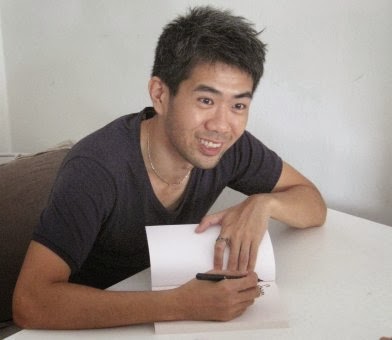British Council Mutiara Damansara
Lot 245A, 2nd Floor
The Curve, Mutiara Damansara
47810 Petaling Jaya
For more information, e-mail arts[at]britishcouncil[dot]org[dot]my or visit the British Council Arts Malaysia Facebook page.
Aw is also a judge for this year's Impac Dublin International Literary Award. The Impac Dublin longlist, he says in The Guardian, is "a gift for readers in search of unexpected delights" such as translated works and "quirky" stuff from all over the world, making the Impac Dublin longlist a more mixed bag than that of some other book prizes.
NSA surveillance is apparently making writers self-censor. A report from PEN America says that, among other things, "16 percent of writers have avoided writing or speaking about a particular topic due to concerns about the NSA."
PEN America is the journal published by the PEN America Center, which was set up to defend free expression and celebrate literature. PEN has also established its International Day of the Imprisoned Writer (15 November), which highlights the works and plight of writers, editors, translators and political essayists and dissidents threatened by repressive governments.
In other news:
- RIP Doris May Lessing, British novelist, short-story writer and winner of the Nobel Prize in Literature.
- Non-existent fact-checking in book publishing allowed Dylan Davies aka Sgt Morgan Jones publish "a Benghazi fantasy".
- Is Amazon's Kindle Source offer to independent bookstores a "Faustian" deal?
- Nine things about listicles that make listicles like the one you're reading now sound plausible.
- Canadian artiste Bryan Adams has come up with an "unlikely, compelling" photography book on wounded war veterans. "This book is just a small example of the atrocities that happen when we bear arms against each other," said Adams in The Daily Beast.
- A US judge ruled that Google's book-scanning project is legal and considered "fair use" under copyright laws. This judgement will not go down well with the Author's Guild in the US. But sci-fi author John Scalzi, for one, is not bothered.
- Is too much being made about being nice or nasty to books? Somebody at The New Yorker thinks so. "...if authors were sages, then it really would behove the rest of us to just pipe down and accept their words from on high. Fortunately, they’re no such thing."
- London writer and bookseller Jen Campbell (Weird Things Customers Say in Bookshops, More Weird Things Customers Say in Bookshops) is writing The Bookshop Book and needs your input. "I want to know why you love bookshops; which bookshops you'd like to sing the praises of; if you've got a memory you want to share, whether it be happy, sad or amusing. You could even tell me about your ideal bookshop; if you could open one, where would it be? What would you stock? Anything you like!"
- Wouldn't it be nice to snuggle in bed reading your favourite blog? A guide for those using e-book readers to read blogs like books.
- A bit about the Polish city of Krakow, the latest Unesco City of Literature.
- "It's very tiring and exhausting when you try to ask for your rights and in return you get a dictatorship," says Aysha, who's part of Jordan's (mostly) female underground slam poetry scene. So she and a bunch of fellow poets are slammin' back.
- Dick Metcalf, an editor (or is it writer/editor or just writer?) who was fired for his pro-gun control article in the Guns & Ammo magazine says two major firearms makers may have played a part in his dismissal.
- Some surprises about the Malay language, and a list of Malay words with Sansrkit origins. Also: "...when a Malay speaks a sentence of ten words, probably five to seven of them will be Sanskrit words..." Considering the look of the web site, betul ke?
- What could be the best and worst 21st-century novels. The century's just started and Katie Price has two.
- "Gaming" literature: should (and would) Fear Factor-like reality shows make book-writing more exciting?
Categories:
Book Marks







